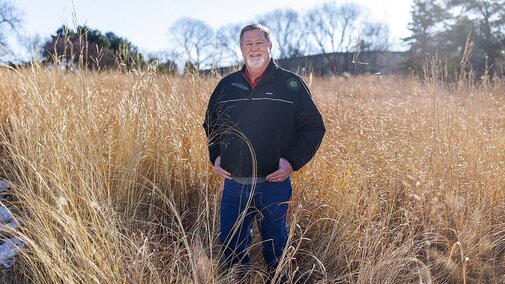University of Nebraska-Lincoln researchers are leading a study of how a targeted restoration of perennial grasses amid cropland could bring about a variety of benefits, ranging from reduction in water and fertilizer use to expansion of wildlife habitat to encouragement of new bioenergy industry.
The four-year, $4 million project will be conducted on University of Nebraska research plots and 12 to 15 on-farm sites in the Republican River Basin in west central and western Nebraska, said Daren Redfearn, the Husker forage systems specialist leading the work.
The project, Expanding the Conversion of Habitat in the Northern Great Plains Ecosystem, or EXCHANGE, has its genesis in a U.S. Department of Energy goal to reduce water and fertilizer use on crops by 25%.
Read more about the project in this Nebraska Today article.

